
James Mountaine
James Mountaine resided at 72 North main Street, Cork where he conducted his leather making business, his home stood at the corner of Broad Lane and survived up to the early 1950’s when it was demolished to make way for a wider enterance to St. Francis Church. He was born approximately 1819. As he grew up he became a prominent supporter of Daniel O’Connell and the repeal movement, he was later to become an active member of the Cork Confederate Club during the Famine period. He was imprisoned with Lamkin, the Varians, Denny Lane and others in the City Gaol, Sunday’s Well in the summer and autumn of 1848. |
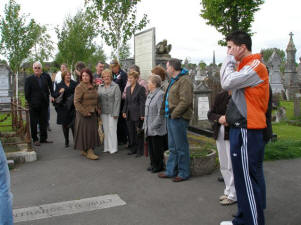 |
James was active in the Cork National Reading Rooms and the brotherhood of St. Patrick, he was a member of the group which organised the 1861 reception in Cork, of the remains of Terence Bellew McManus who died in America and also his funeral procession through Cork city en route to Glasnevin cemetery Dublin. On the 10th March 1863 riots occurred in the city and James Mountaine was arrested and thrown into the city gaol with John Lynch. After several weeks in prison both were tried but were acquitted due to lack of evidence and identification. During 1864 and 1865 the police were constantly watching him even though he did not know it. In October 1865 while the police were searching his home they found highly incriminating documents, he was arrested and taken into custody again. |
On the 28th December James Mountaine was tried, he was defended by the illustrious barrister Isaac Butt who put up a magnificent case in his defence. The jury brought a verdict of not guilty. Very few records have survived as to the reorganisation of the I.R.B. in Cork between the arrests of 1865 and the rising in March 1867, James Mountaine was active at all times and when the “Habeas Corpus” Act was suspended he was arrested and detained again in the City Gaol and suffered the rigours of imprisonment, however he was not brought to trial and was later released. On the 11th of April 1868 James Mountaine Jr. his eldest son died, he is buried beneath his father in this sacred plot. Hearth broken and in ill health after the death of his eldest son, in late September, James was taken ill and confined to his home, six weeks later on the 6th November 1868 James Mountaine died. The following Sunday the funeral took place from his residence to Father Matthew cemetery, which we now know as St. Joseph’s. |
At 2 pm Canon Maguire of St. Peter and Paul’s headed the huge procession, it was estimated that 6,000 marched behind his courtage many wearing mourning crepes of the time. The burial prayers were said by, “Canon Maguire from St. Peter and Paul’s before his remains were consigned to the earth. May 2009 The National Graves Association unveiled a memorial and Plaque to James Mountain Fenian. |
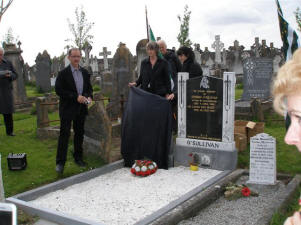 |
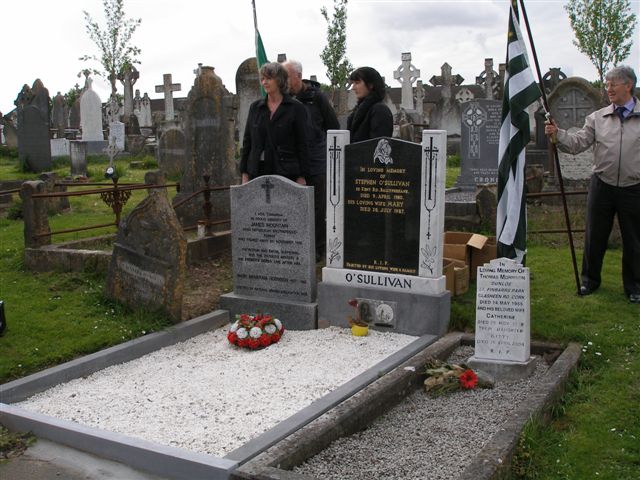 |
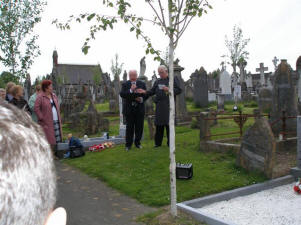 |
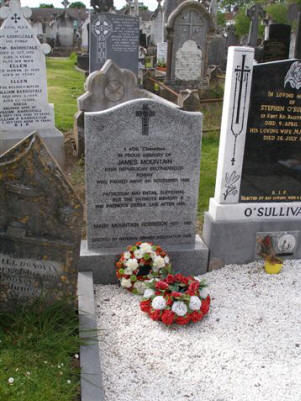 |
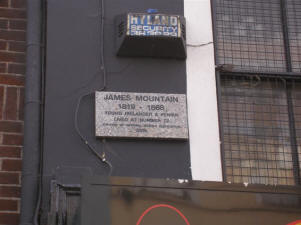 |